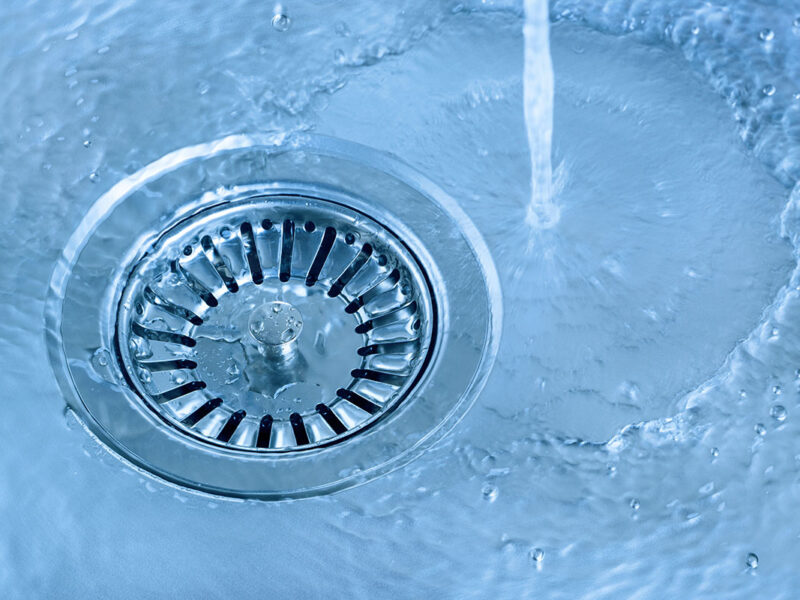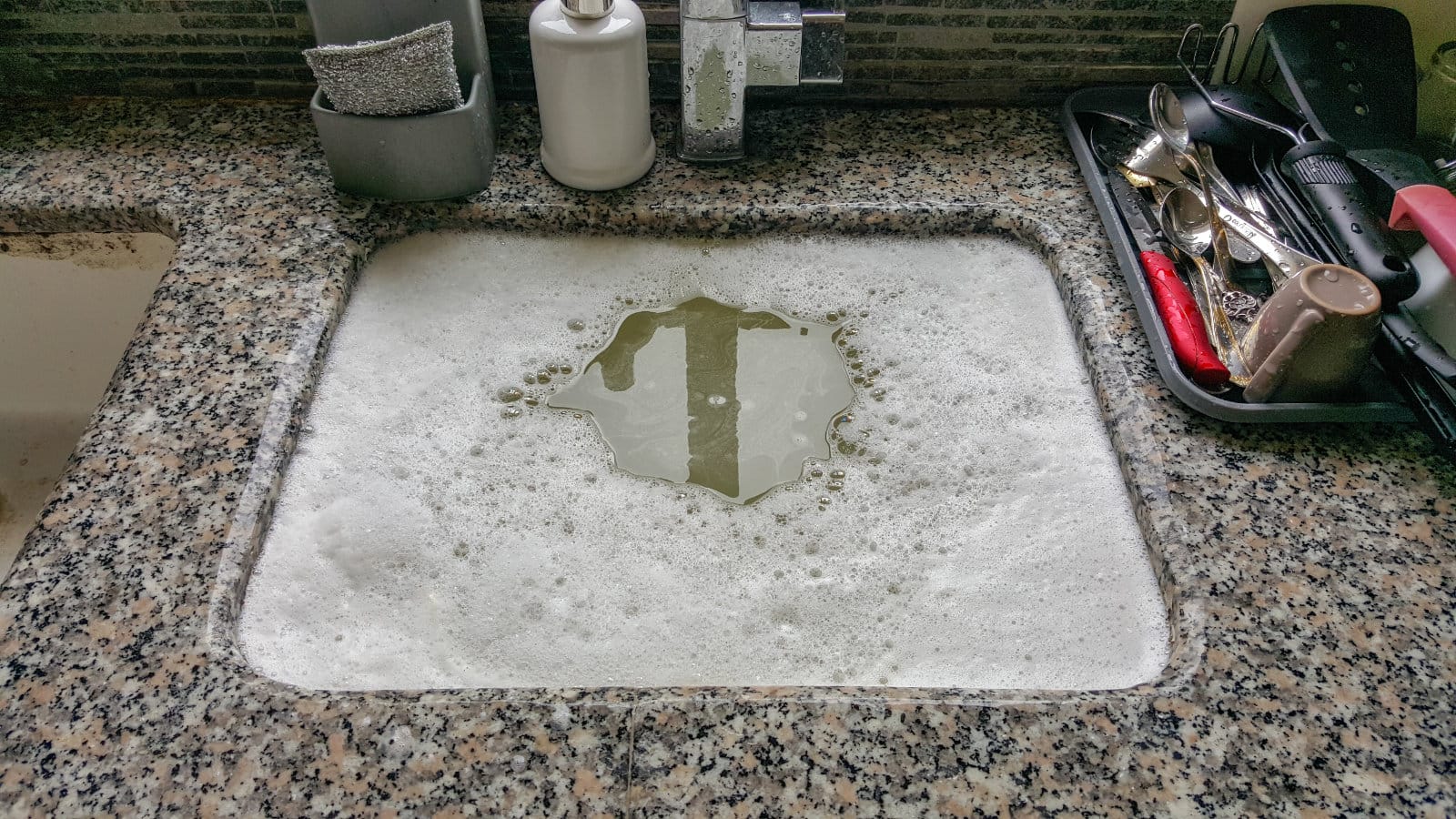Best Strategies For Repairing A Slow-Draining Sink
Best Strategies For Repairing A Slow-Draining Sink
Blog Article
How do you really feel on the subject of 4 Tips to Fix a Slow Draining Sink?

Intro
We've all been there: You're cleaning your teeth or washing your hands, and you notice the water pooling in the sink. Rather than promptly swirling down the tubes, it remains, transforming your once-refreshing morning routine into a mini overload scene. A slow-draining sink isn't just irritating; it's often a sign of bigger plumbing concerns hiding beneath the surface. The bright side is that a lot of slow-draining sinks can be repaired with a little expertise, a few basic tools, and some perseverance. Prepared to tackle this job head-on? Allow's roll up our sleeves and dive right in.
Comprehending the Causes of a Slow-Draining Sink
Before you start poking around in your pipelines, it helps to know what may be creating the stagnation. Comprehending the root cause makes it much easier to choose the appropriate repair.
Common Culprits Behind Slow Water Drainage
So, what's blocking points up? Typically, it's a mix of daily debris-- think hair, soap residue, toothpaste residue, and leftover food fragments. With time, these tiny bits gather and cling to the pipeline wall surfaces, gradually narrowing the flow and making it harder for water to pass through. In some cases, natural resource from difficult water can also include in the gunk, creating the excellent tornado for stubborn obstructions.
When is it Time to Act?
If you observe the water draining pipes slower than normal, it's an excellent idea to intervene sooner as opposed to later. Waiting also long could result in complete obstructions, undesirable odors, or perhaps pipeline damages. If the water takes greater than a couple of seconds to clean out after switching off the faucet, consider it a red flag and prepare yourself to put on your DIY hat.
Devices and Materials You'll Require
The right tools make all the difference. Fortunately, you won't need a completely equipped plumbing technician's van to get the job done.
Crucial Tools for DIY Services
A bettor is your go-to starting point. A small, sink-sized bettor produces suction that can dislodge small blockages. For more consistent obstructions, a drain snake (often called a plumbing's auger) works wonders. A pair of gloves, a flashlight, and maybe a pair of safety goggles are likewise useful.
Recommended Cleaning Solutions
Mild recipe soap and hot water can aid break down greasy build-up. A blend of baking soft drink and vinegar is a time-tested natural home remedy, and chemical cleansers supply an even more environmentally friendly method. Maintain chemical drainpipe cleansers as a last hope, as they can be rough on your pipes.
Safety First: Safety Measures and Preparations
Before you launch into unclogging mode, consider safety and security. You're handling potentially dirty water and debris, so slip on a pair of handwear covers. If you're making use of chemical cleaners, make certain the room is well-ventilated and follow the instructions on the label.
Protective Equipment and Work Space Configuration
Put down some old towels or rags around the sink location to capture sprinkles. Remove any items that could get in your means, like soap dispensers or toothbrush owners. Make sure you have excellent illumination-- order a flashlight if needed.
Step-by-Step Overview to Fixing a Slow-Draining Sink
Now, allow's get into the nitty-gritty. This step-by-step process will certainly lead you via simple methods to recover your sink's water drainage.
Action 1: Remove and Clean the Stopper
Typically, the stopper (that tiny plug you push down to obstruct water) is the very first culprit. Remove it carefully and wipe any kind of hair or gunk trapped around its base. Wash it thoroughly before placing it back in place.
Action 2: Use a Bettor to Dislodge Particles
Got that plunger prepared? Setting it over the drainpipe and give it a few company pumps. The idea is to create suction that can loosen up any obstruction. If you see littles particles drifting up, you get on the appropriate track.
Step 3: Try a Drain Snake or Cord Hanger
If the plunger doesn't suffice, it's time to highlight the drain snake. Gently feed it right into the drain and twist as you go. You might really feel some resistance-- that's most likely the clog. Maintain turning and pulling up until you eliminate the obstruction. If you do not have a drainpipe snake, a straightened cable wall mount can work in a pinch.
Tip 4: Apply a Do It Yourself Drain Cleanser
An all-natural cleaner made from baking soda and vinegar can break down residual crud. Pour half a mug of cooking soda into the drain, adhered to by half a cup of vinegar. Let it fizz for around 15 minutes, then flush with warm water. This chain reaction frequently does wonders for small clogs.
Tip 5: Rebuild and Check the Sink
Put every little thing back together and run the faucet. Does the water currently swirl down the tubes at a reputable rate? If yes, give yourself a pat on the back. Otherwise, do not anguish-- there are still a few more dress up your sleeve.
Alternative Approaches for Stubborn Clogs
Not all blockages are created equivalent. If your sink still declines to coordinate, take into consideration these different options.
Baking Soda and Vinegar Method
We already touched on this, however it's worth noting once again. This mild, environmentally friendly technique is safer than chemical cleaners and often quite reliable.
Chemical Drainpipe Cleansers
Enzyme-based cleaners make use of all-natural germs to digest raw material. They're a superb option if you're aiming to prevent severe chemicals. Simply bear in mind, they may take a bit longer to function their magic.
Chemical Drain Cleaners: Benefits And Drawbacks
Chemical cleansers can blast with hard clogs quick, yet they're not without disadvantages. They can create heat and fumes, damages pipelines if used excessively, and present environmental dangers. Use them sparingly, and always adhere to the instructions meticulously.
Safety Nets to Keep Your Sink Flowing
Prevention is the very best treatment. By taking on a few straightforward practices, you can keep your sink from decreasing to begin with.
Normal Cleaning Up Practices
Wipe down the sink container and component area on a regular basis. Get rid of hair or food bits prior to they have an opportunity to wash down the drain.
Avoiding Harmful Substances Down The Tubes
Hesitate before disposing coffee grounds, grease, or coarse vegetable scraps down the sink. These wrongdoers hold on to pipe wall surfaces, developing obstructions over time.
Regular Maintenance Checks
Schedule a fast monthly inspection. Run warm water through the sink for a couple of minutes, taking notice of the flow. If it appears sluggish, act fast prior to it becomes a full-blown clog.
When to Call a Specialist Plumbing Professional
In some cases, no matter exactly how tough you try, that block just won't budge. That's when it's time to generate the pros.
Signs That Show a More Major Problem
If your sink drains pipes slowly in spite of numerous attempts, or if you see water supporting in other components (like your shower or commode), you might have a much more major plumbing problem lurking much deeper in the system.
Stabilizing Do It Yourself Efforts with Expert Aid
While do it yourself can conserve you money and offer a sense of success, there's no shame in calling an expert. An expert plumber can evaluate your entire pipes configuration, guaranteeing there's no underlying damage or lasting issue that might cost you extra down the road.
Contrasting Prices and Long-Term Solutions
Prior to making a decision, take into consideration the big picture. An economical, quick fix may address the problem temporarily, yet buying an extra long-term option could conserve you cash and stress and anxiety in the long run.
Considering the Expenses of Do It Yourself vs. Professional Repairs
Do it yourself fixes usually cost bit greater than the cost of a plunger or a container of cooking soda. Professional solutions, on the other hand, come with a price tag but might protect against repetitive issues and costly fixings later on.
Purchasing Top Quality Fixtures and Upgrades
If your sink's style adds to regular clogs, it might be worth upgrading to higher-quality components or modifying the plumbing format. Consider this a financial investment in your home's capability and comfort.
Verdict
A slow-draining sink can feel like a small irritation, however it's frequently an indication that your pipes needs a little TLC. By comprehending the root causes, utilizing the right tools and methods, and devoting to simple preventive measures, you can maintain your sink streaming openly. And when all else stops working, never ever wait to hire an expert-- your home's pipes deserves the financial investment in care and upkeep.
Three Common Ways to Fix a Slow Drain
Baking Soda Method
Boil a full pot of water. Measure out cup of baking soda and pour it down the drain. Then take cup of the magical cleansing substance known as white vinegar and drop that down there too. Allow the mixture to fizz in the drain for five minutes as the vinegar and baking soda combine. Now dump in that whole pot of boiling water. This combination of cleaning substances should clear out anything that is causing your sink to drain slowly. If it doesn t...
Zip-It
If the baking soda method doesn t clear out your drain, it may be because a significant amount of hair and/or other debris has collected there and you need to remove it. Purchase a Zip-It tool at any home improvement or hardware store and insert it into your drain. It will catch any collected hair or debris that s blocking the flow of water. Pull it out. If it s got a big clump of hair, etc. on the end, you ve probably got your culprit.
Drain Cleaner
If these methods don t work, there is the standard drain cleaner that you can also buy in a hardware store or even your local grocery store. It s better if you can use a household solution, but these drain cleaners often work in a pinch. They re very simple to use. You generally just dump them in your drain and wait. If even this method is not effective, it may be time to call the plumber.
https://www.mrrooter.com/oneida/about-us/blog/2017/july/three-common-ways-to-fix-a-slow-drain/

I came across that blog entry about 4 Tips to Fix a Slow Draining Sink while scouting around the internet. Those who enjoyed reading our page plz do not forget to pass it around. Bless you for your time. Return soon.
Go Deal Now Report this page